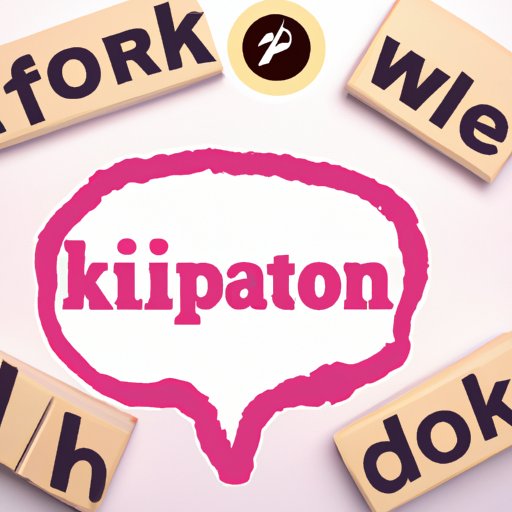
Introduction
Wikipedia has become an essential tool for people around the world in their quest for information. From looking up historical events to researching tips on how to fix a car, this free online encyclopedia has become a go-to source for millions of people. The fact that Wikipedia is a non-commercial and advertisement-free platform is a statement to its commitment to ensure that everyone can have access to reliable information without having to pay for it. However, running a platform as large and comprehensive as Wikipedia comes with significant expenses. That’s why it relies on the generosity of donors to keep its servers running, its volunteer editors happy, and its mission of providing free and accessible knowledge going forward.
The Cost of Running Wikipedia
Many people may not be aware of the actual costs of keeping Wikipedia running. According to a report from the Wikimedia Foundation, the parent organization of Wikipedia, the total expenses for the site in 2020 were just over $117 million dollars. This money goes towards paying for technical infrastructure, such as servers and other related equipment; employee salaries, including those who work in operations, legal, and fundraising departments; as well as other associated costs related to maintaining an online platform that serves more than 1.7 billion unique visitors per month.
You may ask yourself, why not simply monetize the site and have ads plastered all over the page to generate revenue? This would not only detract from the user experience but also run the risk of compromising the neutrality that Wikipedia is known for. By promoting products or services, there could be a perception that the site is biased in favor of certain companies or interests. This would undermine the very foundation of the platform, which is to provide free, neutral and unbiased information to users worldwide.
The Human Side of Wikipedia
While the technical infrastructure and server costs are significant, Wikipedia’s most valuable asset is its volunteer community. Since its inception, Wikipedia has relied on editors and writers who contribute their time and expertise to help develop and edit articles. These volunteers work in an environment that promotes collaboration, free exchange of ideas and most importantly, the passion to help make information available to others.
Donations help to keep this volunteer network thriving. They provide the resources to support edit-a-thons, conferences, and other community events that bring together editors to share ideas and work on articles collaboratively. These events allow volunteers to learn new skills, gain feedback on their work, and receive recognition for their significant efforts.
Why Wikipedia is a Non-Profit
Wikipedia’s non-profit status may be surprising to some people. However, the site is not designed to generate a profit but rather to provide free and accessible knowledge to as many people as possible. There is no better way to demonstrate this commitment than by operating as a non-profit organization.
Wikipedia’s broader mission goes beyond their free encyclopedia. It also includes programs that focus on expanding access to knowledge, such as partnerships with cultural institutions, educational programs in developing countries, and outreach projects aimed at promoting languages that are underrepresented on the platform. By remaining a non-profit, Wikipedia can focus on achieving these goals without the pressure of prioritizing profit over public service.
Wikipedia’s Impact
Wikipedia’s impact is undeniable. As the world’s largest and most extensive encyclopedia, it has become a trusted source of information for people around the globe. Recently, Wikipedia has made significant improvements, further enhancing its user experience. The platform is now more mobile-friendly, offering new features such as multimedia capabilities and improved search functionality. These updates have made the site more accessible and user-friendly to users who depend on their smartphone to access information.
Donations contribute to expanding Wikipedia’s capabilities and reaching even more people. In addition, donations help power research and development activities that aim to improve the platform even further. Wikipedia’s future goals include additional language support and artificial intelligence projects to help users navigate the site more efficiently and with greater precision.
Supporting the Little Guy
One of the most significant benefits of donating to Wikipedia is that even the smallest contributions can make a difference. Wikipedia relies on small donations from a large number of people rather than depending on large donations from a few individuals or corporations.
Individual donations help to power Wikipedia’s mission. They also demonstrate the fact that many people value the free access to information that Wikipedia provides and recognize the importance of supporting its ongoing viability.
Perhaps the most inspiring part of these donations is the stories of the individuals who provide them. These supporters often have their own motivations for contributing, such as recognizing the significant role that Wikipedia played in their academic and professional lives or simply feeling passionate about the importance of public access to knowledge.
Conclusion
Wikipedia is an essential repository of knowledge that is free and open for everyone. As a non-profit organization, it relies on donations to keep its servers running, its editors engaged, and its mission on track.
Supporting Wikipedia is not only about helping to maintain a platform that promotes free information but also maintaining a world where access to knowledge is a fundamental right. Donating to the site can help to inspire the next generation of editors, ensure that Wikipedia continues to evolve and innovate, and most importantly, help to keep the world informed.
So, if you are someone who values the importance of knowledge and public access, consider donating to Wikipedia. Even a small contribution can make a difference.





